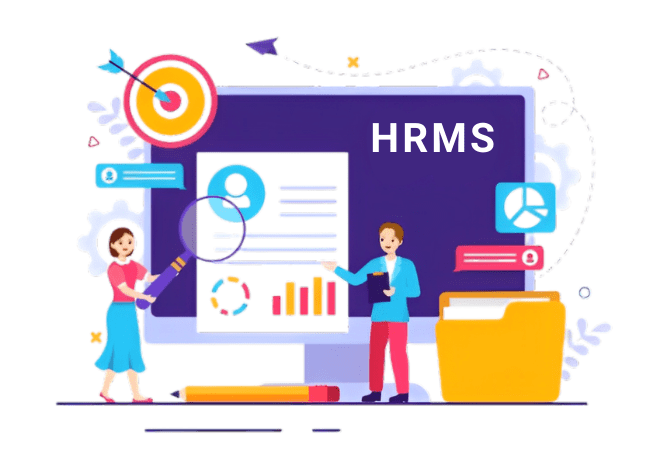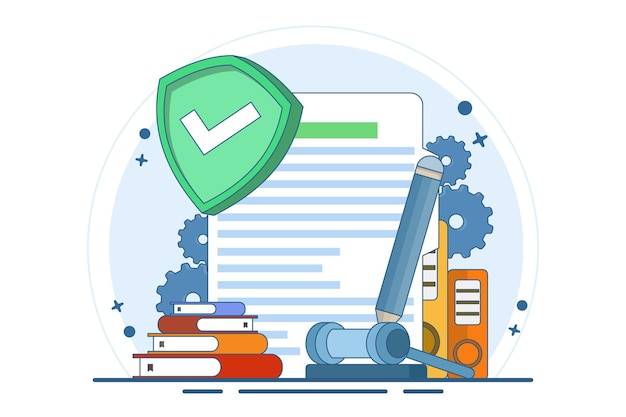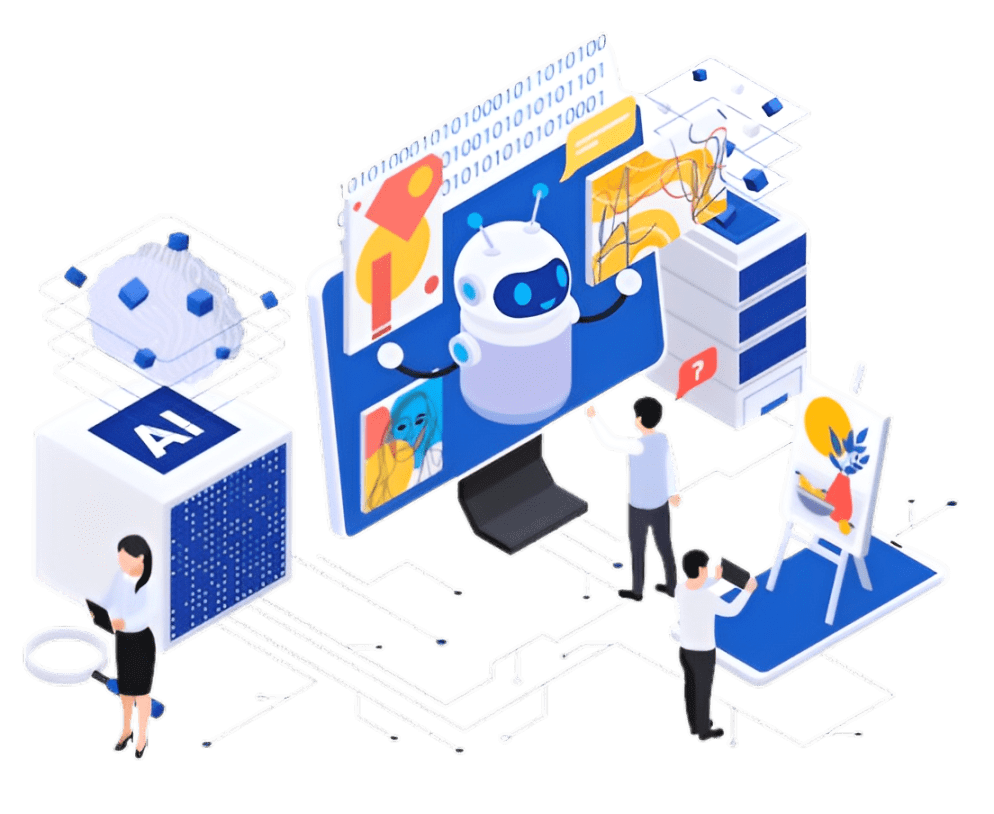At HRTailor, we specialize in delivering comprehensive Monthly HR Solutions with a focus on various aspects of Human Resource Management. Our HR Blogs is your go-to resource for up-to-date information and insights, curated by seasoned HR professionals who truly understand your HR needs. Here, you’ll find expert advice on a wide range of topics, including payroll, benefits, employee relations, and compliance. Our blogs offer practical solutions to common HR challenges, keeping you informed about the latest trends and best practices in the HR field.
Whether you’re seeking answers to specific HR issues or simply want to stay abreast of current HR developments, HRTailor’s blog provides valuable knowledge and guidance to help you navigate the complexities of HR management. Explore our blog and stay informed with the latest Monthly HR Solutions tailored to your needs.

In recent years, government oversight has skyrocketed, and businesses of all sizes are feeling the pressure. Keeping up with evolving regulations on employee welfare, taxes, and workplace standards isn’t just a nice-to-have—it's a necessity.

Labor compliance isn’t just a checkbox for businesses to tick off—it’s a foundational aspect of running a responsible, trustworthy, and legally sound company. With labor regulations constantly evolving, the challenge of staying compliant can feel overwhelming. Yet, non-compliance can lead to serious consequences.

With a rapidly evolving workforce and competitive job market, companies in India are increasingly realizing the importance of effective benefits management. A strong benefits package not only helps attract top talent but also keeps employees engaged and motivated.

Keeping up with statutory compliance is a critical part of running a business. Statutory compliance refers to the legal framework within which an organization must operate, covering everything from employee wages and benefits to workplace safety and anti-discrimination measures.

In today’s business landscape, compliance is about more than just avoiding fines—it’s about creating a trustworthy and ethical workplace that attracts top talent and builds a positive brand reputation. While departments like legal and finance often handle regulatory compliance, Human Resources (HR) plays a crucial role in employee and business compliance.

In a world of increasing regulations and rising expectations for ethical business practices, maintaining compliance is crucial for every organization. Internal compliance audits are an invaluable tool to identify gaps, mitigate risks, and ensure that your organization adheres to legal and regulatory standards.

Running a small business comes with its fair share of challenges. From managing day-to-day operations to scaling growth, small business owners often wear many hats. Amid all this, compliance might seem like something only big companies need to worry about. However, nothing could be further from the truth.

In today’s fast-paced work environment, HR departments are busier than ever. Managing employees, tracking attendance, handling payroll, and maintaining records can be overwhelming, especially as companies grow.

Expense Management is a critical function for any business, yet it often becomes a time-consuming, error-prone task when handled manually. From tracking receipts to approving reimbursements, expense management involves multiple steps that can easily bog down HR and finance teams.

In today’s fast-paced business world, Performance Management isn't just about annual reviews—it's an ongoing process that drives growth, motivation, and productivity across the organization. An efficient HRMS (Human Resource Management System), can simplify and enhance performance management.

In today’s digital age, security and efficiency are top priorities for organizations managing a dynamic workforce. Biometric integration software, a technology that uses unique biological traits like fingerprints or facial recognition for identification, has become a game-changer in Human Resource Management Systems (HRMS).

Employee exit management is an important yet often overlooked part of HR operations. When an employee leaves, there are countless details to address—final paperwork, asset returns, and access deactivation, just to name a few. Without a structured approach, these tasks can easily slip through the cracks, leading to compliance risks and a less-than-positive exit experience for the employee.

Managing employee leave and attendance is a critical yet often challenging task for HR teams. Tracking absences, monitoring attendance patterns, managing overtime, and ensuring accurate payroll calculations can quickly become overwhelming, especially in growing companies.

Managing human resources can be one of the most complex aspects of running a business. From handling payroll to managing leave, tracking attendance, and ensuring compliance, HR tasks are numerous and often time-consuming. That’s where a Human Resource Management System (HRMS) comes in—a digital solution designed to automate and streamline HR processes.

For small and growing businesses, managing HR in-house can quickly become overwhelming, especially without a dedicated team. The solution? Setting up an online HR system that centralizes everything—from hiring and payroll to performance management and compliance—on one digital platform.

Employee documentation might sound like a mundane topic, but it’s actually one of the most powerful tools in your HR toolkit. Done right, documentation isn’t just about staying compliant—it’s about creating a structured, efficient, and transparent workplace.

For many business owners, the phrase "statutory compliance setup" might not spark a lot of excitement. It might even sound like a tangle of rules and red tape you'd rather avoid. But here’s the truth:

As a business owner, you’ve got plenty of decisions to make. From budgeting and hiring to marketing and product development, your plate is already full. One of the critical choices you’ll face as your company grows is how to handle your HR needs. Should you outsource HR to a specialized provider, or is it better to build an in-house team?

When it comes to managing a successful business, the importance of a strong salary structure often gets overlooked. We know that competitive pay is a key factor in attracting talent, but a clear, consistent salary structure goes much deeper—it shapes employee motivation, supports company culture, and even impacts the bottom line.

In today’s fast-paced work environment, manual HR processes are becoming a thing of the past. As more businesses embrace digital transformation, Human Resource Management Systems (HRMS) have emerged as essential tools for managing HR tasks efficiently.

When it comes to managing a successful business, the importance of a strong salary structure often gets overlooked. We know that competitive pay is a key factor in attracting talent, but a clear, consistent salary structure goes much deeper—it shapes employee motivation, supports company culture, and even impacts the bottom line.

Starting a new business is both exciting and challenging. You’re focused on developing products, acquiring customers, and setting up your brand. But as your team grows, so do your responsibilities—especially when it comes to managing human resources. From hiring and onboarding to payroll and compliance, HR tasks can quickly pile up, stretching your limited resources.

Launching a startup is exciting, but it can also be overwhelming. There are so many things to think about, and one of the most important is HR. HR is responsible for everything from Employee Onboarding to Exit Management Employee benefits and Compliance.

Startups encounter several obstacles, one of which is efficiently managing human resources. Finding economical HR service providers that are also dependable and give high-quality services, on the other hand, might appear to be an impossible challenge. In this blog, we will look at the problems that startups have when looking for HR Outsourcing Solutions.

In today’s competitive business landscape, efficiency is king. Companies everywhere are constantly searching for ways to streamline operations, cut costs, and focus on core growth strategies. Enter HR outsourcing —a solution that’s gaining traction across industries for its ability to help businesses of all sizes manage their human resources functions more effectively.

For many businesses, onboarding is one of the most crucial yet challenging HR functions. A well-designed onboarding process helps new employees feel welcome, equips them with the tools they need to succeed, and lays the foundation for long-term retention.
![[freepicdownloader.com]-payroll-isolated-concept-vector-illustration-normal payroll outsourcing benefits](https://hrtailor.com/wp-content/uploads/elementor/thumbs/freepicdownloader.com-payroll-isolated-concept-vector-illustration-normal-qwy3pxwcfyfxj9ww6dtx53zdvqaq1qppe90cmg2n68.jpg)
Managing payroll is no walk in the park—it's one of those tasks that can take up hours, even days, of time and resources. From calculating hours and deductions to keeping up with tax regulations, payroll processing is a critical task that rarely adds direct value to your bottom line. So, what's the alternative? Payroll outsourcing.

Employee relations and grievance handling are essential to creating a positive work environment. However, these tasks often require dedicated expertise and significant resources, which many businesses, especially small and medium-sized ones, may struggle to provide in-house.

In today’s fast-paced business environment, finding the right talent can make or break your organization. Talent acquisition is no longer just about filling vacancies—it’s about strategically aligning your hiring process with long-term business goals.
![[freepicdownloader.com]-hand-drawn-neuroeducation-illustration-normal talent acquisition](https://hrtailor.com/wp-content/uploads/elementor/thumbs/freepicdownloader.com-hand-drawn-neuroeducation-illustration-normal-qx1kvgoioaxp8m7k69bzwmp0vmx023k5stj89dn55c.jpg)
In today’s fast-paced, ever-evolving workplace, technical skills alone just don’t cut it. Sure, expertise in specific tasks is important, but when it comes to building a resilient, high-performing team, soft skills like communication, adaptability, problem-solving, and teamwork are absolute game-changers.
![[freepicdownloader.com]-hands-holding-resumes-as-hr-manager-selects-top-candidates-normal talent acquisition](https://hrtailor.com/wp-content/uploads/elementor/thumbs/freepicdownloader.com-hands-holding-resumes-as-hr-manager-selects-top-candidates-normal-qv27vmkbwfd7td8tjbezrlbsw63v3uamw4hp475pi4.jpg)
When it comes to hiring, terms like “talent acquisition” and “recruitment” are often thrown around as if they mean the same thing. But in reality, these two processes serve distinct purposes, each with its own strategies, goals, and impacts on a company’s workforce.

In today’s hyper-competitive job market, hiring the right talent is both an art and a science. You need the right blend of speed, skill, and strategy to attract top candidates before your competitors do.

Artificial intelligence (AI) is undeniably changing the way companies approach talent acquisition. From automating repetitive tasks to analyzing candidate data, AI offers the promise of faster and more efficient hiring.

In today’s hyper-competitive market, finding the right people can feel like searching for a needle in a haystack—blindfolded! As businesses race to secure top talent, many are turning to expert partners.

Hiring great talent is only half the battle; keeping them engaged, satisfied, and committed to your company is just as critical. High turnover rates can drain resources, damage company morale, and impact productivity. .
Address:
HRTailor. All Rights Reserved | Privacy Policy | Terms & Conditions | Refunds & Transfers